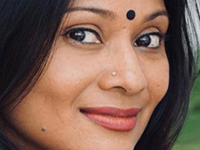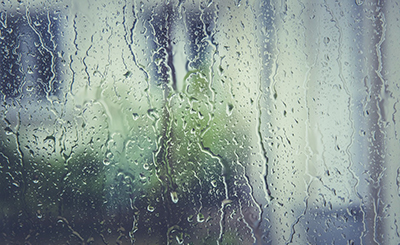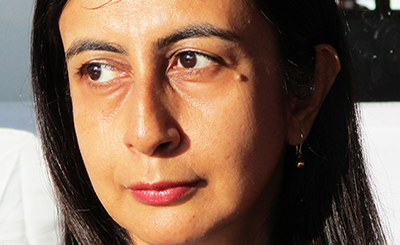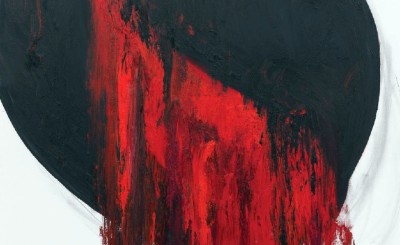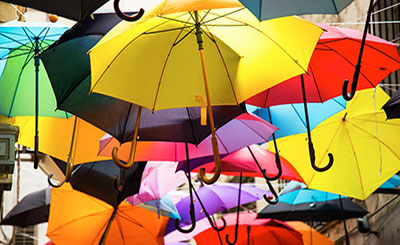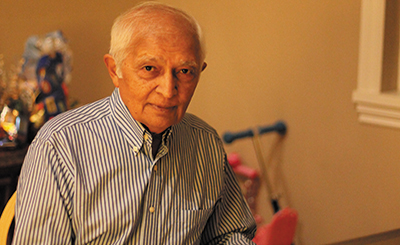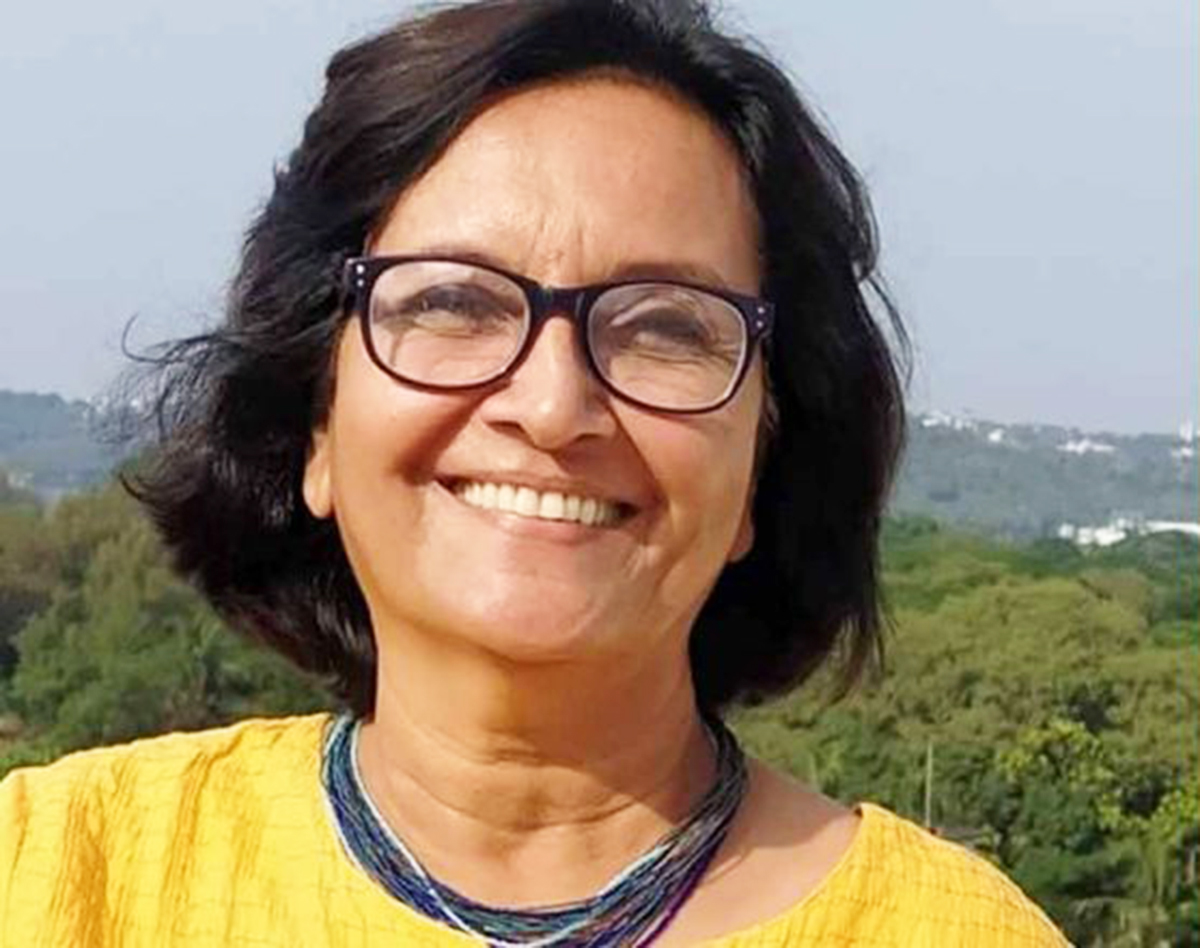
Bevinda Collaço, former journalist and author. Photo courtesy of the author.
Bevinda Collaço is an author who pulls no punches. In a witty and wise rollercoaster of a self-help book, I’m Old, I’m Wise & I Know My Sh*t, she offers an irreverent take on many facets of a woman’s life. A former journalist and mediaperson, she comes with a nose for stories and a gift for telling them well.
The first section of the book deals with teenage and the twenties and why every young woman needs a working Bullshit Radar. The second is a clear-eyed look at some of the thornier issues beyond the romance and roses; domestic violence, dealing with disrespect, divorce and death. The third covers childbearing and parenting and why it’s not for everyone and if it is, there’s practical advice on how to make it work. The last bit is for the 50-plus years and talks about fun and creative ways to make them count, all the way up to the funeral.
In this interview, she talks about her reasons for writing the book, the things she discovered along the way, and what makes I’m Old, I’m Wise & I Know My Sh*t an essential and handy reckoner for both men and women of all ages. The ebook of I’m Old, I’m Wise & I Know My Sh*t is available for purchase here.
Excerpts from an interview:
I’m Old, I’m Wise & I Know My Sh*t seems to be a book based on a lifetime of learning and observation. Was there a particular moment in time when you felt this book needed to be written?
I was hoodwinked into answering letters for an agony aunt column in WEEKENDER, a local Goa magazine, as part of my editorial duties. I received an average of thirty, mostly tear-spattered letters a week, from teens, both boys and girls, youth, men and women in their prime and even the very elderly. Most needed common-sense answers and sympathy. But a sizable number needed police, women’s groups and psychiatric intervention. Unlike sensible agony aunts, I arranged that help for them.
That kind of trauma was rife in the 1990s and early 2000s. It continues and seems to get worse as the years go by. This book needed to be written. The letters I received as an agony aunt served as a frame for this book.
Could you share any insights that came to you during the writing of this book, in terms of how women view themselves and their place in the world? Also, would you say this book is mainly for women readers?
I had formed a cause-and-effect conclusion around how we make wrong decisions based on first impressions and how some of us compound those with further poor decisions. If you study media from the angle of literature created for girls — fairy tales, rainbows and unicorns were created for girls’ mind development. Rules of society decree that girls must be raised a certain way.
Books, television serials and films of romance are devoured by the average girl. Advertising comes right into our homes extolling the glory of motherhood, domesticity and sacrifice of the woman’s needs and wants. What’s worse is mothers and mother-in-laws force unfair norms of society on girls and women in their care. That bothers me.
These norms allow too many boys and men to do whatever the f*ck they please, and they haven’t a clue that they are engineered since birth, to treat women with contempt. So, yes, this book is for male readers, too. Two male friends have loved this book and are actively promoting it. One is sure it will save lives.
You present a somewhat daunting picture of motherhood, and all the life changes it brings. Do you find it’s best to prepare for the worst when it comes to the early parenting years?
You are pushing a three-kilo lump of ham out of your body through your vagina, then you have to grow and nurture that ham into a balanced individual. Pregnancy, labour, delivery, parenting is not the pretty picture we are raised to believe it to be. Yes, some women and men are born for great parenting, but so many are completely unfit for the job.
They break their children and then society has to deal with those broken people. The world is already overpopulated. Why add to the numbers? I have given a personal and general set of experiences from people who have shared their thoughts with me.
Hope for the best, but prepare for the worst, definitely.
In your experience, what are some of the common errors in judgement women seem to make as they navigate the complexities of their personal and professional lives?
When a young woman transitions into adulthood, she has to go through a process of unlearning. The training she has received at home and in academia, or skills training is just not enough when it comes to interaction in the workplace. There’s condescension, ridicule, obstacles and then covert or overt sexual harassment. We are not equipped to stop people from getting under our skin. We have to cultivate detachment when navigating our professional life.
On the home front, the woman is expected to have superhuman time management skills. She is expected to perform well on every front from the kitchen to the laundry room, to the dining room, to the bedroom and even the supermarket. My book tells her not to be Superwoman, simply because no one cares. Just do what she can do, and for the rest, delegate.
Too many women are physically and mentally abused by monsters they have married or are in a live-in partnership with. Of course, not all men are bastards. Some are nice bastards. My book outlines the danger signals the bully or the psychopath sends out early in the relationship. It also offers solutions for mental abuse and domestic violence.
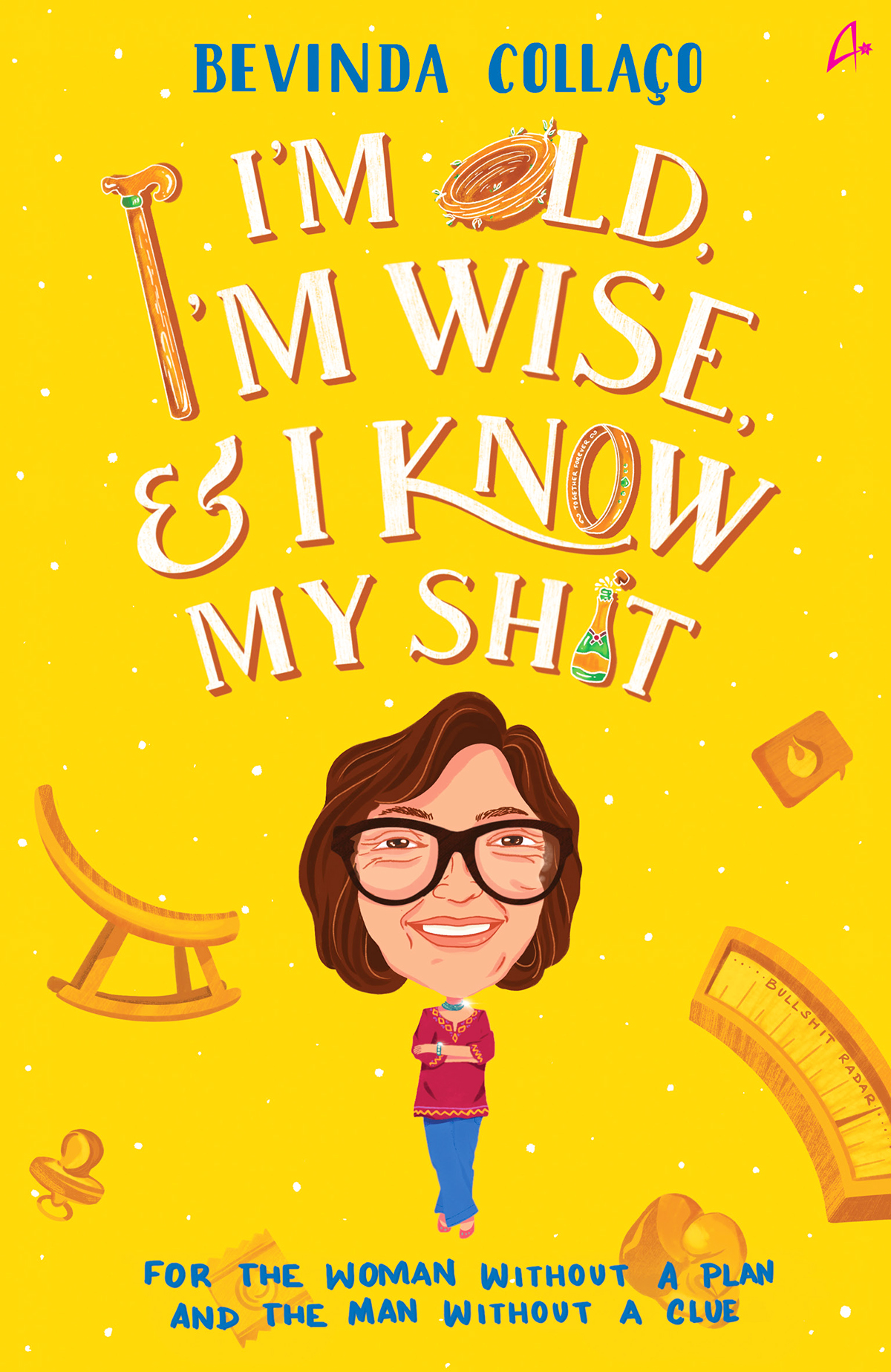
I’m Old, I’m Wise, & I Know My Sh*t
By Bevinda Collaço
Amaryllis - an Imprint of Manjul Publishing House
Rs 220, pp 182
Why is domestic violence and mental abuse so rampant?
It’s strange that many women are drawn towards men who hate women. It’s hatred. Only hatred would make a man smash his fist into a woman’s face, fling her across a room, break her bones. I think it’s because these haters of women deeply resent two things, the woman’s mind and her vagina. Why her vagina? Because she can take something as pissy and slimy as semen into her vagina, do some serious magic and create life. They can’t handle that.
Then you have mental abuse where the man can reduce a woman to an abject, frightened slave without raising a hand on her. That’s more common than domestic violence, but it can destroy a woman as comprehensively.
The book lists warning signs and provides solutions, too.
I sent the relevant chapters to the international experts I referenced. Not only have they willingly given me permission in writing to quote them, but they have cheered me on, too. They helped corroborate my views on so many painful relationship issues.
● Pamela Meyer, author of Liespotting (Chapter on Bullshit Radar and peer pressure)
● Jane Epstein nurse practitioner specialising in adolescent medicine, in her TEDx talk Why We Need To Talk To Girls About Sex. (Chapter on first-time sex)
● Adam Lodolce, author of Men Love Confident Women; (Chapter on using dating for eliminating the wrong ones)
● Dr Ramani Durvasula, clinical psychologist, author of Should I Stay or Should I Go: Surviving A Relationship with a Narcissist (Chapter on mental abuse)
● Leslie Morgan Steiner, author of memoir, Crazy Love (Chapter on domestic violence)
● Bernardo Villafañe, clinical social work/therapist, LCSW, in his video on Domestic Violence (Chapter on Domestic Violence)
● Psychologist Guy Winch in his talk How to Fix a Broken Heart (Chapter on Dumping, Divorce and Death of a Loved One)
● David A. Sbarra, PhD professor, Department of Psychology, University of Arizona, also president, Academy of Psychological Clinical Science; (Chapter on Dumping, Divorce and Death of a Loved One)
The chapters on the later years are so very liberating and hopeful. In your view, what are the most important ways in which women can prepare for a meaningful, enjoyable life beyond middle age?
These are the years when women turn invisible. No one notices us. And we take that cue and retire into a grey listless lonely reality. We must work on being visible to ourselves first. Bring colour and purpose into our lives, make friends, dive into hobbies, volunteer, or just be blissed out doing nothing except pampering ourselves and doing what we love.
I have written about how I longed for menopause like a dog for a bone, about how the mid-life crisis could be a great adventure, but know that like a firecracker, it will flame and burn out rapidly. I have written about how the empty nest actually gives you more room to spread your wings and fly. And finally, how you MUST rock that rocking chair stage. Be free, be happy, be healthy and when you pop off, make sure your family and friends throw a huge party to celebrate your life. Put the fun into the funeral.
If you had this book as a guide in your growing-up years, what, if anything, would you have done differently in your own life?
I have blundered my way through life with no specific plan. I have let life happen, but yes, if I had this book, I would definitely have been a better parent. I feel the need to apologise to my daughters for not doing a better job, but they seem to have turned out alright. They are better parents than I, at any rate. Maybe instead of marrying, I could have gone adventuring across the world, but looking at where I am today, I’m happy. The universe has been kind for the most part, handing me a buffet of fine fare — sweet, salt, spicy and some bitter. It’s been a good ride.
What hopes do you have for the book?
I believe it is a book that is needed today. I am not reinventing the wheel here. I am offering four wheels and a vehicle for growth. In the self-help genre among world publications, I’m Old I’m Wise & I Know My Sh*t,is like a scrappy street dog alerting the neighbourhood. The print edition will be released once Covid-19 calms down in India. When it does, I hope it is read, shared, stolen, highlighted, underlined and dog-eared. I hope it is gifted to girls and boys, to women and men.
It’s a good thing that publishers Amaryllis, the English imprint of Manjul Publishing House, are excited about this book. Manjul Publishing House will also be translating it into Hindi.
This interview was part of June 2021 issue, which got delayed due to the pandemic and was released on October 15
More from The Byword
Comments
*Comments will be moderated



